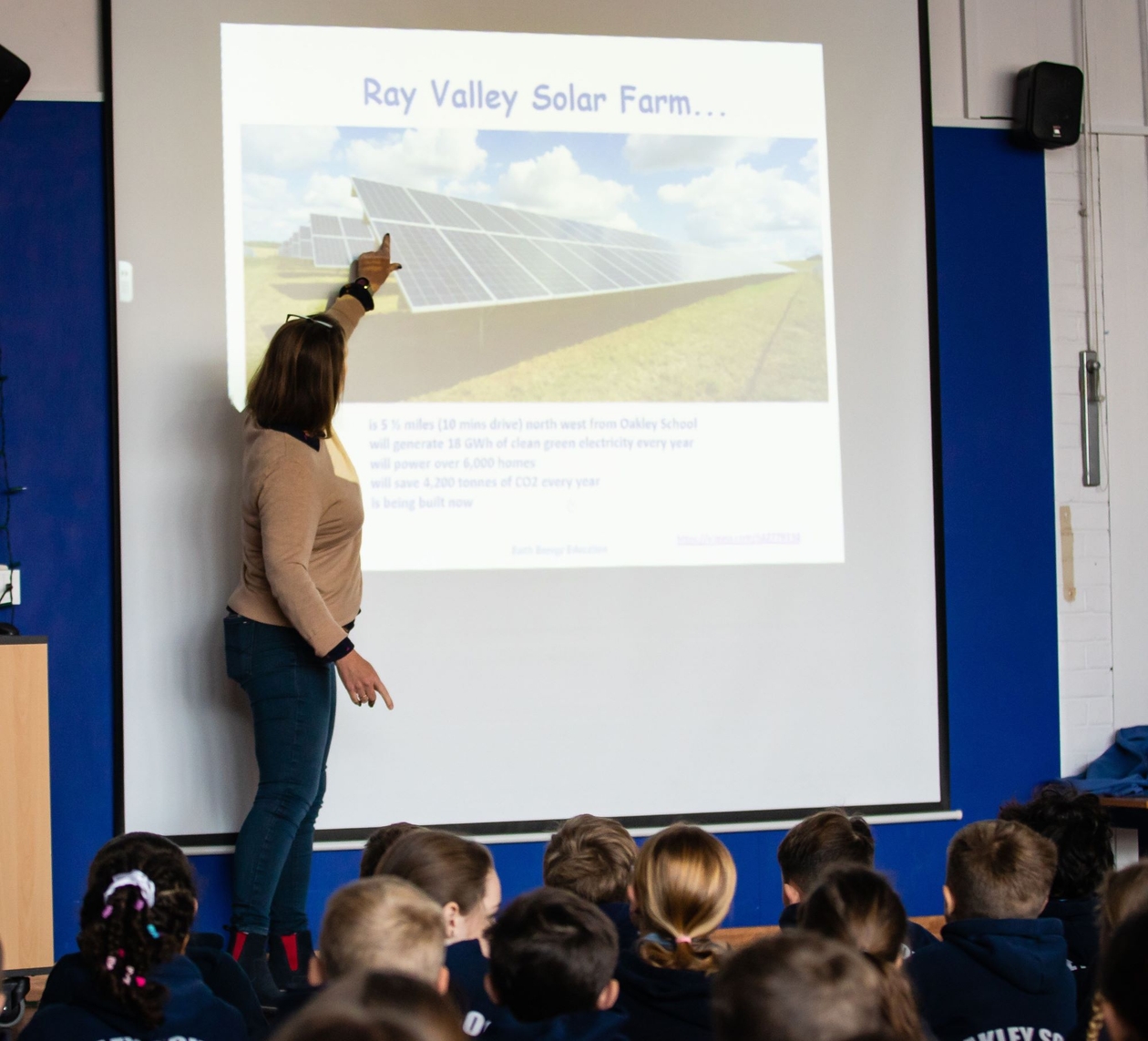Low Carbon Energy Day – Oakley School
When we founded Low Carbon ten years ago, our overarching ambition was to build a better and more sustainable future for all. By investing in renewable energy, developing new green energy assets, and optimising the way renewable sites are managed, we are taking steps every day to reduce our environmental impact and protect the livelihoods of future generations.
As evidenced by activists like Greta Thunberg, engaging young people in the debate plays a vital part in keeping climate change high on the agenda. We were therefore thrilled when Oakley CoE Combined School approached us after hearing of our plans for the Ray Valley Solar Park, a project in collaboration with the social enterprise Low Carbon Hub.
With a generating capacity of 18GWH per year and 45,000 solar panels, the Ray Valley Solar Park is set to be the UK’s largest community-owned solar farm. The park’s community ownership means that any surpluses produced from the solar park will be used to benefit the local area, with a goal of establishing a community benefit fund worth over £10 million over the project’s lifetime.
The project is due for completion later in 2022. But when Oakley School contacted us last year asking if we could support its climate change curriculum by educating their pupils on renewable energy, we couldn’t refuse the opportunity to start immersing ourselves in the community straight away.
After six months of careful planning, in November 2021 – despite heavy rain and snow – a successful day of exciting yet informative activities took place at Oakley School. These were carefully chosen to complement core subjects across the school’s curriculum. Children from Reception through to Year Six played with solar powered toys, learnt which household appliances consume the most electricity, used light sensors and made pinwheels resembling wind turbines. Some of Oakley School’s older children even held mock debates on the benefits of building solar sites.
The children of Oakley School discussed different sources of renewable energy with our representatives, and other ways we can slow the pace of climate change on a global and local level. Each pupil made an individual climate change pledge at the end of the day, highlighting one small thing they could do to save energy and in turn protect the planet. As the school’s Science and Maths Lead, Serena Courtney noted, “it was a day of bringing the learning to life, relating it to a real site in our locality.”
Educating younger generations about what can be done to slow the pace of climate change is essential in tackling it. We were blown away by the enthusiasm shown, and the level of engagement with the materials Low Carbon provided. We look forward to supporting more schools with Low Carbon energy days and to hearing more from the next generation of green recruits as we all do our bit to protect the planet.

